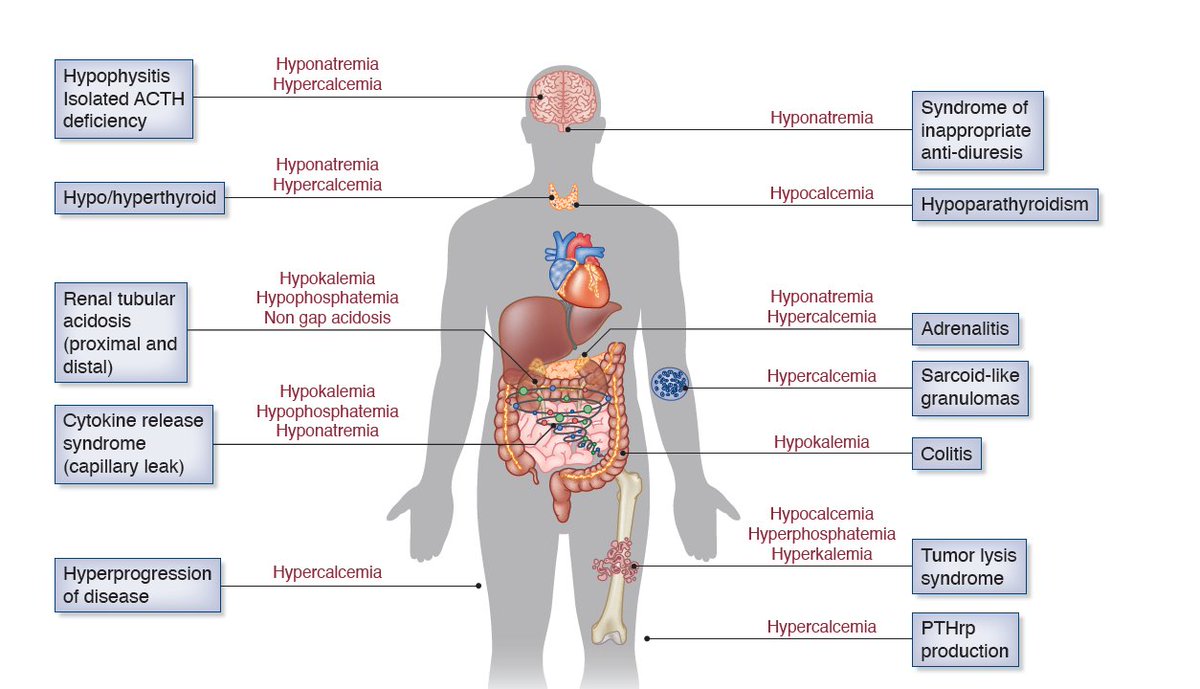
1.Tweet chain alert...on GNs with #covid19 vaccine... what is the most common GN seen post COVID19 vaccine?
2. A study led by Meryl Waldman @NIH creating a registry to evaluate de novo glomerular diseases potentially attributed to COVID19 vaccines published in @ASNKidney360 @ASNKidney may help answer this question journals.lww.com/kidney360/Abst… 

3. An earlier study by @Tiff_Caza showed IgA nephropathy, MCD, membranous nephropathy, crescentic GN, and collapsing GN as the most common GNs-attributed to COVID19 vaccines but was limited to 29 patients only pubmed.ncbi.nlm.nih.gov/35372991/ @ASNKidney360 

4.We wanted to better characterize the glomerular diseases via an International Registry of COVID-19 vaccination and Glomerulonephritis (IRocGN2) to study in aggregate de novo glomerulonephritis cases suspected after COVID-19 vaccine exposure 

5. Methods: A RedCap survey was used for anonymized data collection. Detailed information on vaccination type and timing and glomerular disease histology were recorded in the registry. 

6. Results: 98 glomerular disease cases were entered into the registry over eleven months from 44 centers throughout the world. Median follow-up was 89 days after diagnosis. IgA nephropathy (IgAN) and minimal change disease (MCD) were the most the common kidney diseases reported 



7. Temporal association is strongest for #IgAN and #MCD with symptoms within two weeks of vaccination. Strength of association to vaccination is less strong for the other glomerular diseases. Vaccine type did not matter--see Table 1
8. Acute tubulointerstitial nephritis is superimposed on glomerular disease in 25% of cases and may potentially serve to unmask pre-existing glomerular disease after vaccination 

9.Recovery of kidney function and remission of proteinuria was more likely in IgAN and MCD at 4-6 months than with vasculitis and membranous nephropathy but longer term follow up is needed as the pace of recovery differs among histology in general and with co-morbidities.
10.Notably, the incidence of GN has not increased from pre-vaccination to post vaccination. We were not able to include that type of historical analysis in our paper but prior studies have shown that. Prior study showed this. @ASNKidney360 kidney360.asnjournals.org/content/2/11/1…
11. Similarly,a study from Switzerland using data from all Swiss pathology institutes did not find any differences in incidence of the four common GNs before or after initiation of the COVID-19 vaccination campaign kidney-international.org/article/S0085-… 

12. A recent study from looked at a population-level cohort -- first dose of a the vaccine was not associated with relapse risk. @JASN_News journals.lww.com/jasn/Fulltext/…
13. There was a two fold higher risk of relapse after subsequent vaccine dose but the increase in absolute risk associated with vaccination was low (1%–5%), and most affected patients did not require a change in immunosuppression or biopsy. suggesting that most relapses - mild 

14. In summary--development of glomerular disease after vaccination against #$SARS-CoV-2 may be a very rare adverse event., but evidence of causality is not established for any of the glomerular diseases. Kidney outcomes for IgAN and MCD are favorable. 

15.Importantly, there are many complexities, confounders and challenges with attributing an adverse event to vaccination that must be considered including pre-existing undiagnosed kidney issues. Many of these challenges are highlighted in the paper.
16. No changes in vaccination risk-benefit assessment is recommended based on these findings particularly since COVID-19 infection is associated with various types of acute and chronic kidney injury and other long term organ complications.
17. Check out the full paper and thanks to all collaborators @tiff_caza @renalmyeloma @edgarlermamd @MVankalakunti @AnilaKurien @KidneyStudy @EsperanzaMoralB @GMftah @kidneydoc12 @EuniceRamd journals.lww.com/kidney360/Abst…
And more @proximal_baxi @drisleem @veleznephhepa @nephrodby @AW_Aron88 @glom_busterMD @ThepHunClub @nupuruppal @KidneyStudy @MunerMohamed1 @threadreaderapp unroll
• • •
Missing some Tweet in this thread? You can try to
force a refresh









